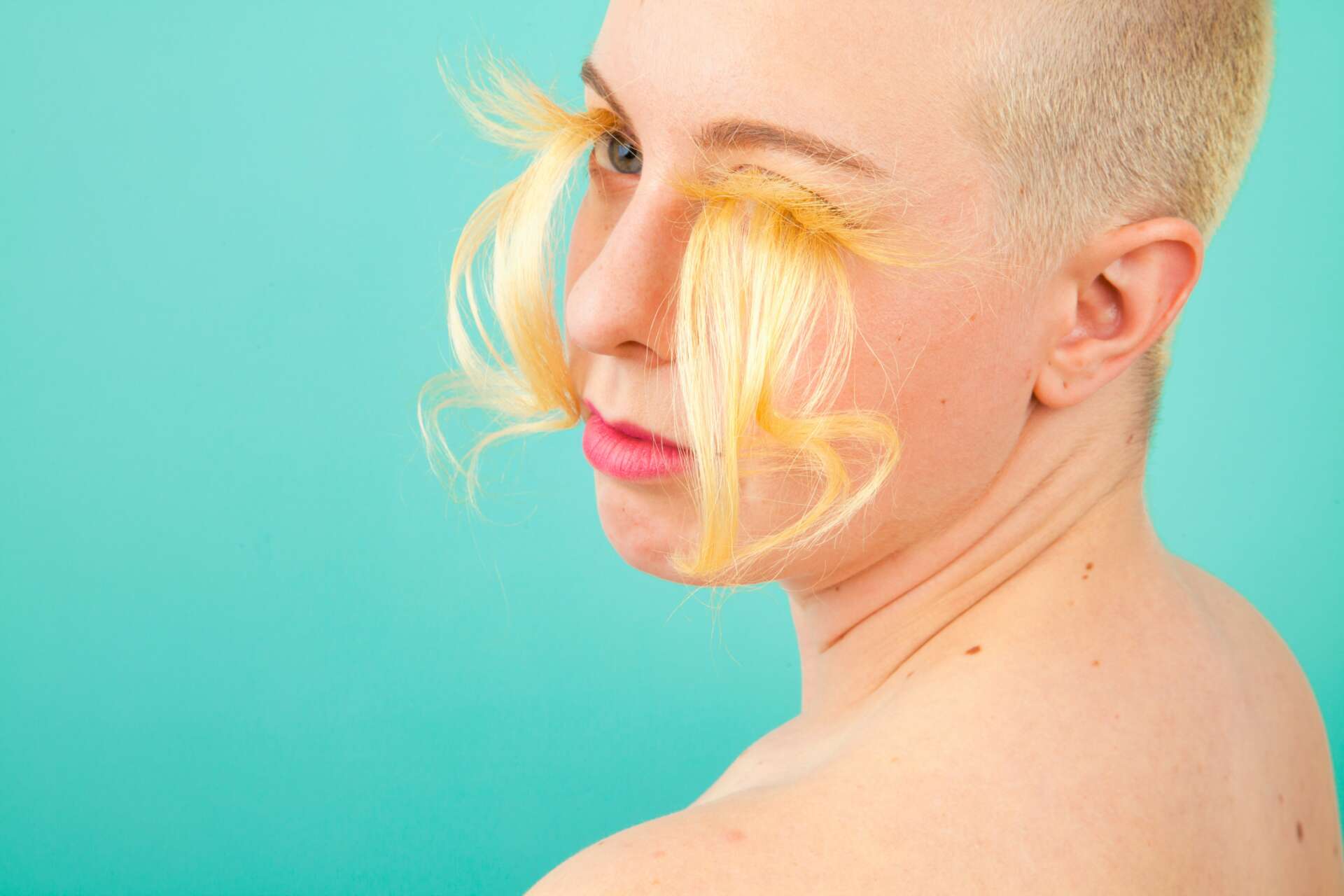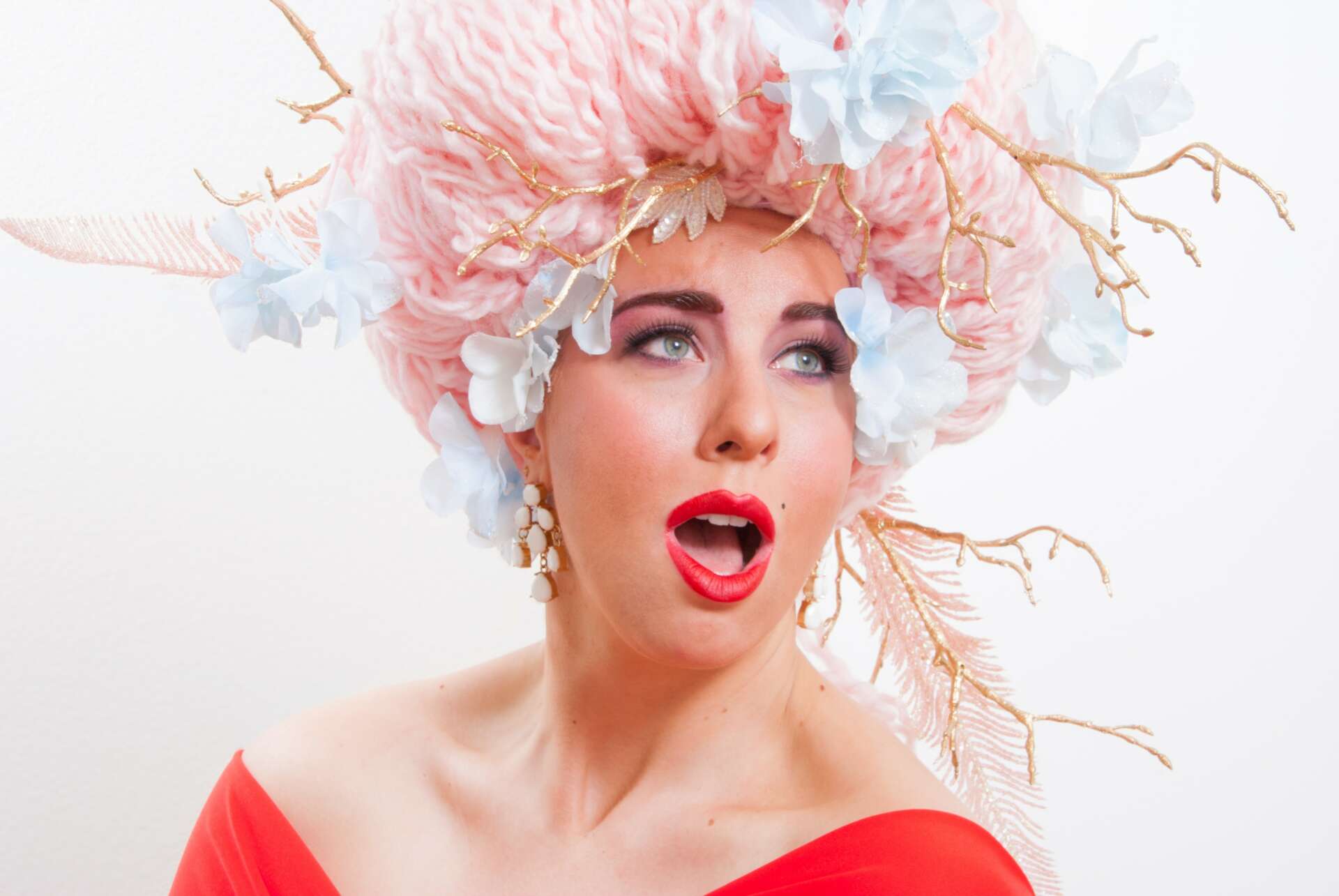We were lucky to catch up with Eden Collins recently and have shared our conversation below.
Alright, Eden thanks for taking the time to share your stories and insights with us today. We’d love to hear about when you first realized that you wanted to pursue a creative path professionally.
The short answer? Five years old. I told my grandma that I was going to be an artist. The long answer, 20 years old. Instead of becoming an artist, I took a safer route and studied pre-vet in college. That is, until I met my undergrad mentor Billy Mayer, who changed my life. I wanted to be him for future students. He was my sculpture professor and the first person I remember really helping me learn how to think for myself. He showed me how artists do succeed professionally despite the starving artist narrative. Meeting him helped me realize that I still did want to be an artist, and I wanted to be an educator. Someone who would help future generations of artists have the courage to continue making. It was sophomore year in college that I made the terrifying call to my parents to tell them I was leaving my Biology and Chemistry classes behind for an Art major. Even then, it took until I was 26 years old to return to grad school to actually become an artist and educator full-time.



As always, we appreciate you sharing your insights and we’ve got a few more questions for you, but before we get to all of that can you take a minute to introduce yourself and give our readers some of your back background and context?
I’m a queer artist born and raised in West Branch, a small town in the northeast lower peninsula of Michigan. My parents joked that I never really fit in there. It’s true. My family told me that I lived on “Planet Eden: population 1” because I was always off dreaming of something. I think I created worlds in my mind because I didn’t feel like I belonged amongst the cornfields. I eventually studied art at Hope College in Holland, MI, and then completed my MFA at UTSA in San Antonio, TX. I studied sculpture, but I have never left Planet Eden, where as the sole occupant, I had to perform all the roles. Because of this, I also make performances, videos, and photographs that include me dressed as various characters. A lot of my work grapples with how our identities are forged through socialization, and I use my characters to help others imagine how differently we might all act if we didn’t feel the compulsion to hide our unfiltered selves. I also make work that questions how we teach or fail to teach our youth about human sexuality and the impact that has on us into adulthood. Growing up with a doctor and nurse as parents, bodies were simply anatomical, and genitals were no differently discussed than the sigmoid colon (a common topic of dinner conversation). Shame about our existence is tiring and a waste of energy that could be put elsewhere, and my ultimate goal in my work is to help others recognize the shame they harbor and start to embrace that we are all just tiny little weirdos on our own invisible planets. And that is frankly amazing.


Is there a particular goal or mission driving your creative journey?
Yeah! I might even call it a life mission. I want people to love and have compassion for themselves. It might sound froufrou, but I mean it. As I was saying before, I think that shame dictates a lot of our decision-making in a hurtful way. Contrary to what anyone tells us, we should not feel bad about ourselves for having human desires, for how our anatomy, hormones, and bodily chemistry work, and for not being the same as all the other people around us. Yet so often we are embarrassed or ashamed of ourselves. I remember being a high school senior on the swim team, and one of my teammates told me she was horrified that other girls masturbated because her mother told her that her lady parts were dirty and to touch herself was to embrace the filth. I explained how vaginas are self-cleaning organs, so on the contrary, they were far from dirty. Still not convinced, she insisted she could never try it. I countered with recommending she have a date with the water from her bathtub faucet. A few weeks later, she walked up to me glowing with excitement. She had had the date, and it had gone well. They were seeing each other on the regular. In a matter of weeks, she had managed to shed the self-hatred and discover the amazing things a human body can experience. I want to help everyone learn to care for themselves a little more, and I use my art to initiate that conversation. If we love ourselves more, we feel more agency, and when we have agency, real change happens.


What can society do to ensure an environment that’s helpful to artists and creatives?
First and foremost, we can recognize that artists and creative people are essential. Being creative is inherently human. We create music, we dance, we draw, we perform. We walk around in art every day. The patterns on our clothes are designed by an artist. The cut of our clothes is designed by an artist. We live inside spaces touched by artists. The wallpaper, the couch, the pillows, the curtains. Even our phones, our ear buds and headphones, our computers, our cars. All these things we take for granted at one point were in the hands of artists. Our world would be drab and grey without artists. Artists ask, “what if?” rather than “how to?” We need creative thinkers. That’s where progress comes from. Because artists are so essential, we need to pay them what their artwork and their minds’ work is worth. Consider how much we pay a plumber or an electrician. These individuals are highly skilled and know their trade. Artists are the same. When we purchase a work, we are not only paying for the materials purchased by the artist and the hours dedicated to creating the piece, but we are also paying for the thousands of hours it took for the artist to get to their level of skill and knowledge. We must respect artists as skilled tradespeople, and thus support them monetarily as such. While that means it might take longer to purchase a coveted piece, it makes the purchase all that much more delicious when we can finally bring home the artist’s work.

Contact Info:
- Website: edencollins.com
- Instagram: edencollins_art
- Other: vimeo.com/edencollins
Image Credits
Photos courtesy of the artist


